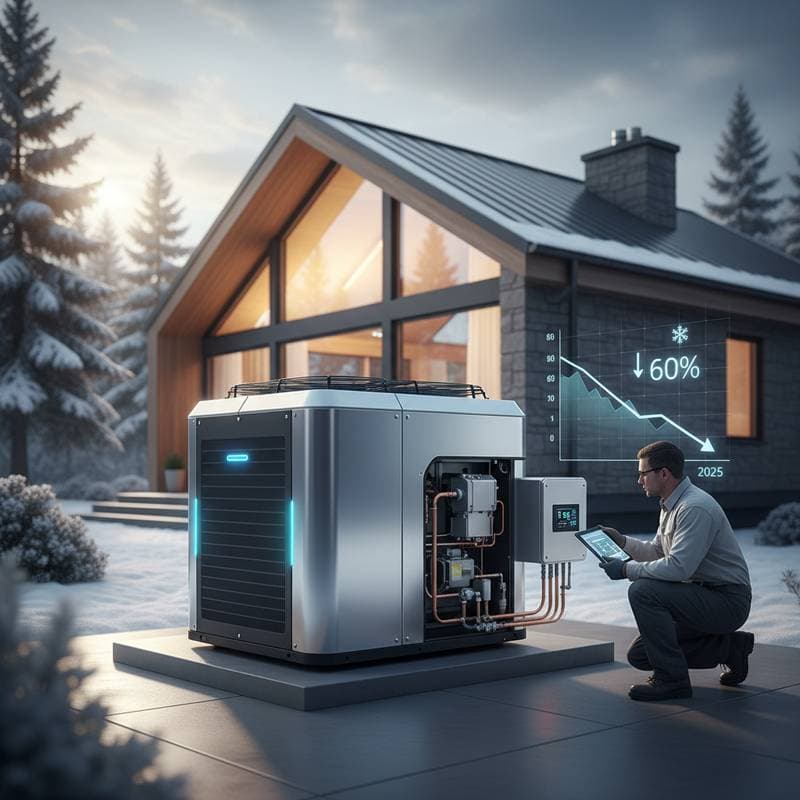How Regular HVAC Tune-Ups Save Money and Enhance Home Comfort
As an experienced HVAC professional, I have witnessed many homeowners deal with escalating energy bills, inconsistent room temperatures, and sudden system failures during peak seasons. Imagine returning to a home that should offer refreshing cool air on a sweltering day, only to find the unit struggling to perform. Or consider a chilly evening when the heating system delivers barely warm air, leaving you uncomfortable. These common issues arise frequently, yet homeowners can avoid them through consistent HVAC maintenance.
From my extensive work in the field, I know that regular tune-ups lead to systems that operate more reliably, require fewer repairs, and consume less energy over time. Homeowners who prioritize this habit maintain steady comfort levels while keeping expenses under control. Instead of reacting to emergencies, they invest in prevention that pays off in multiple ways.
Common Reasons HVAC Systems Break Down Without Maintenance
HVAC equipment serves as the core of home comfort, and neglect allows dust, debris, and component wear to accumulate unnoticed. In warmer climates, cooling units often operate continuously, which strains their parts and reduces efficiency. During cold periods, heating systems endure heavy demands that degrade elements like igniters, fans, and safety mechanisms.
Based on patterns I have observed across thousands of installations, proper care can cut major failure risks significantly and lower energy consumption by a noticeable margin. Homeowners who skip tune-ups often face premature breakdowns, while those who commit to regular service enjoy smoother performance year after year.
Key Advantages of Professional HVAC Tune-Ups
A thorough tune-up goes beyond basic inspections, as technicians clean, adjust, and verify all critical components for optimal function. This process not only boosts system efficiency but also enhances indoor air quality, reduces safety risks, and generates real cost savings for households.
Homeowners experience these benefits directly through lower utility bills and more consistent temperatures throughout their living spaces. In addition, the service identifies potential issues before they escalate, preserving the overall integrity of the home environment.
Proven Strategies to Prolong Air Conditioning Longevity
Start by ensuring coils and filters remain clean, since buildup forces the unit to work harder and increases energy use while accelerating wear. Technicians also verify refrigerant levels to maintain effective cooling without overburdening the system.
Lubrication of moving parts prevents friction-related damage, much like routine care extends the life of other mechanical devices. Finally, testing safety controls confirms the system will shut down appropriately during malfunctions, safeguarding both the equipment and your household.
Essential Gains from Furnace Maintenance
Tune-ups optimize combustion processes, which minimizes energy waste and promotes even heat distribution. Certified professionals inspect for issues like cracked heat exchangers to eliminate carbon monoxide hazards.
This attention creates balanced airflow that removes drafts and uneven temperatures in rooms. As a result, the system lasts longer, protecting your investment in home comfort for years to come.
Spot Early Warning Signs Through Routine Checks
Maintenance sessions reveal subtle problems, such as unusual noises like grinding or rattling that signal internal wear. Cycles that run unusually short or long often indicate inefficiencies or imbalances.
Sudden increases in utility bills or rooms that stay uncomfortably warm or cool point to underlying issues. Addressing these promptly prevents minor concerns from turning into major disruptions during extreme weather.
Important Factors When Planning HVAC Maintenance
Tune-ups typically cost between $100 and $200 and require about two hours, offering substantial value compared to replacement expenses that can reach $3,000 to $5,000. Homeowners should weigh this investment against the long-term savings in energy and repairs.
Safety remains paramount, so tasks like refrigerant handling and carbon monoxide testing demand licensed expertise. As John V., a veteran heating specialist I have collaborated with on many projects, notes, "HVAC systems aren't designed to be ignored. Maintenance helps them breathe as they should."
Local regulations may mandate specific standards for repairs, so confirm with your service provider that all work complies to avoid potential fines. These considerations ensure maintenance aligns with both practical needs and legal requirements.
Take Action for Reliable Home Comfort
View your HVAC system as a vital element that protects your family from outdoor extremes, and provide it with the attention it deserves for dependable performance. Consistent care yields efficient operation, comfortable indoor spaces, and unexpected financial benefits.
I advise scheduling tune-ups twice annually to prepare for seasonal shifts and maintain peak efficiency. Contact a qualified professional to assess your setup, and transform your home into a space of consistent reliability and comfort.
Frequently Asked Questions
Q: How often should I schedule an HVAC tune-up?
A: Aim for twice a year, with one before summer for cooling systems and another before winter for heating. This schedule minimizes breakdowns and supports efficient operation across seasons.
Q: What does a typical HVAC tune-up include?
A: Professionals inspect, clean, and test components such as coils, burners, fans, refrigerant levels, safety switches, and airflow. They provide a detailed report with any suggested improvements.
Q: Can I perform HVAC maintenance myself?
A: You can handle simple tasks like changing filters and clearing vents, but specialized work including refrigerant checks, electrical tests, and combustion safety requires a licensed expert.
Q: How much can regular maintenance save me?
A: Utility costs often decrease by 10 to 15 percent, and extended equipment life can prevent thousands in premature replacement expenses.
Q: What are the risks of skipping tune-ups?
A: You may encounter higher bills, frequent repairs, reduced air quality, and accelerated system failure. In severe cases, undetected hazards like carbon monoxide leaks pose serious threats.



